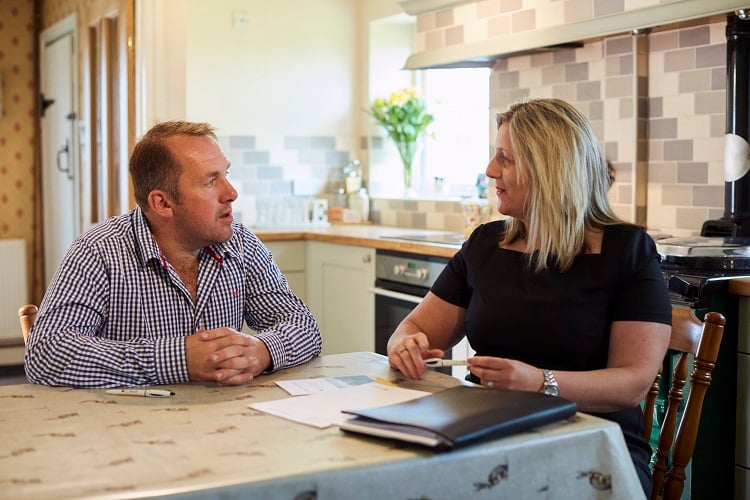What does the Autumn Budget mean for you?
The Chancellor’s Budget focussed on the Government’s plans for the economy. There were several important announcements that could affect your personal finances.
We've outlined a summary of the key points below for you.

Inheritance Tax
The headline grabbing announcement was the decision to limit the protection from Inheritance Tax (IHT) when passing on farms and qualifying businesses. Currently Agricultural Property Relief (APR) and Business Property Relief (BPR) can reduce or eliminate any Inheritance Tax payable regardless of their value.
From April 2026 the combined value of APR and BPR that qualifies for 100% relief (meaning that no IHT is payable) will be limited to £1 million per person. APR and BPR will be restricted to 50% relief on any value above £1 million, meaning that half the value will be free of IHT while the balance will be included in the IHT calculation.
BPR on qualifying unlisted shares (including those quoted on the AIM market) will be limited to 50%.
The standard tax-free allowance of £325,000 and the extra £175,000 available on your home if left to a ‘direct descendant’ which were due to be frozen until 2028, will now be frozen until 2030.
This change will have a significant impact on farmers, landowners, and business owners. It’s important to take advice on the new rules and how they impact you and your family.
Pensions
Despite predictions that the many tax advantages of pensions would be trimmed back, they were left largely untouched.
The most significant change was the decision to include any unspent pension funds in the Inheritance Tax calculation on death from April 2027.
Despite this change, pensions remain one of the most tax-efficient ways to invest. In addition to tax relief on what you pay in, any growth is free from UK Income Tax and Capital Gains Tax. Up to 25% of your fund can be taken as a tax-free lump sum (capped at £268,275 unless you have protection).
If you think you may be impacted by this change, it’s important to take advice before making any decisions.
Capital Gains Tax (CGT)
The Chancellor increased the rates of CGT payable on chargeable sales or gifts from 30th October 2024. The lower rate of 10% increases to 18% and the higher rate from 20% to 24%.
The rates payable on sale or gift of residential property (other than your own home) will remain at a lower rate of 18% and a higher rate of 24%.
Pension contributions can be used in some circumstances to mitigate higher CGT bills, but it’s important to take advice based on your own circumstances.
National Insurance
While there was no increase in the rate of National Insurance for employees and the self-employed, employers will see their National Insurance rate increase from 13.8% to 15% from April 2025. In addition, the threshold from which employers pay National Insurance per employee will reduce from £9,100 to £5,000 from the same date.
Employers with a National Insurance Contribution (NIC) bill of £100,000 or less in the previous tax year can currently deduct £5,000 (known as Employment Allowance), this will increase to £10,500 from April 2025 for all employers regardless of the size of their previous years NIC bill.
For those who are directors of their own limited companies, this will make it more attractive to take profits through an employer pension contribution, which are free of employer's National Insurance.
Similarly, it will be more attractive for employers to reward employees via employer pension contributions rather than pay.
ISA Allowances
The continued freeze on the tax-free Income Tax Personal Allowance, Dividend Allowance, Savings Allowance and Capital Gains Tax exemption makes it more important than ever to take advantage of your ISA allowance to protect income and gains from tax. The allowances remain at £20,000 per adult and £9,000 per child each tax year.
How did the markets react?
A sense of fear hung over many areas of the UK financial markets in the long and tortuous run up to the budget. Government bond yields have been rising on concerns of greater borrowing, and small and mid-cap equities struggled against rumours of higher Capital Gains and Inheritance Taxes.
On the actual announcements there were some small pockets of relief. Shares listed on the AIM market bounced as Inheritance Tax relief was only halved rather than completely removed and Gaming stocks reacted well to the lack of a rumoured tax hit. However, whilst things weren’t as bad as worst-case fears, it wasn’t an investor friendly budget and Government bonds continued to fall as the extra borrowing will lead to higher than anticipated gilt sales.
The most positive thing for investors is simply to have the uncertainty out the way, so they can move on and focus on sound global economic and corporate fundamentals.
The value of investments can fall as well as rise and you may get back less than invested.
The tax treatment of pensions and ISAs depends on your individual circumstances and may change in the future.
NFU Mutual Financial Advisers advise on NFU Mutual products and selected products from specialist providers. When you contact us we'll explain the advice services we offer and the charges. Financial advice is provided by NFU Mutual Select Investments Limited.
Please note that Inheritance Tax advice is not regulated by the Financial Conduct Authority or the Prudential Regulation Authority.
The tax treatment of pensions and ISAs depends on your individual circumstances and may change in the future.
NFU Mutual Financial Advisers advise on NFU Mutual products and selected products from specialist providers. When you contact us we'll explain the advice services we offer and the charges. Financial advice is provided by NFU Mutual Select Investments Limited.
Please note that Inheritance Tax advice is not regulated by the Financial Conduct Authority or the Prudential Regulation Authority.

Looking for financial advice?
If you’re not sure how to put your financial plan in place we can help. An NFU Mutual Financial Adviser will recommend products that are right for you based upon your personal circumstances. You can book an appointment with an NFU Mutual Financial Adviser by either calling: 0800 622 323 or requesting a call back.